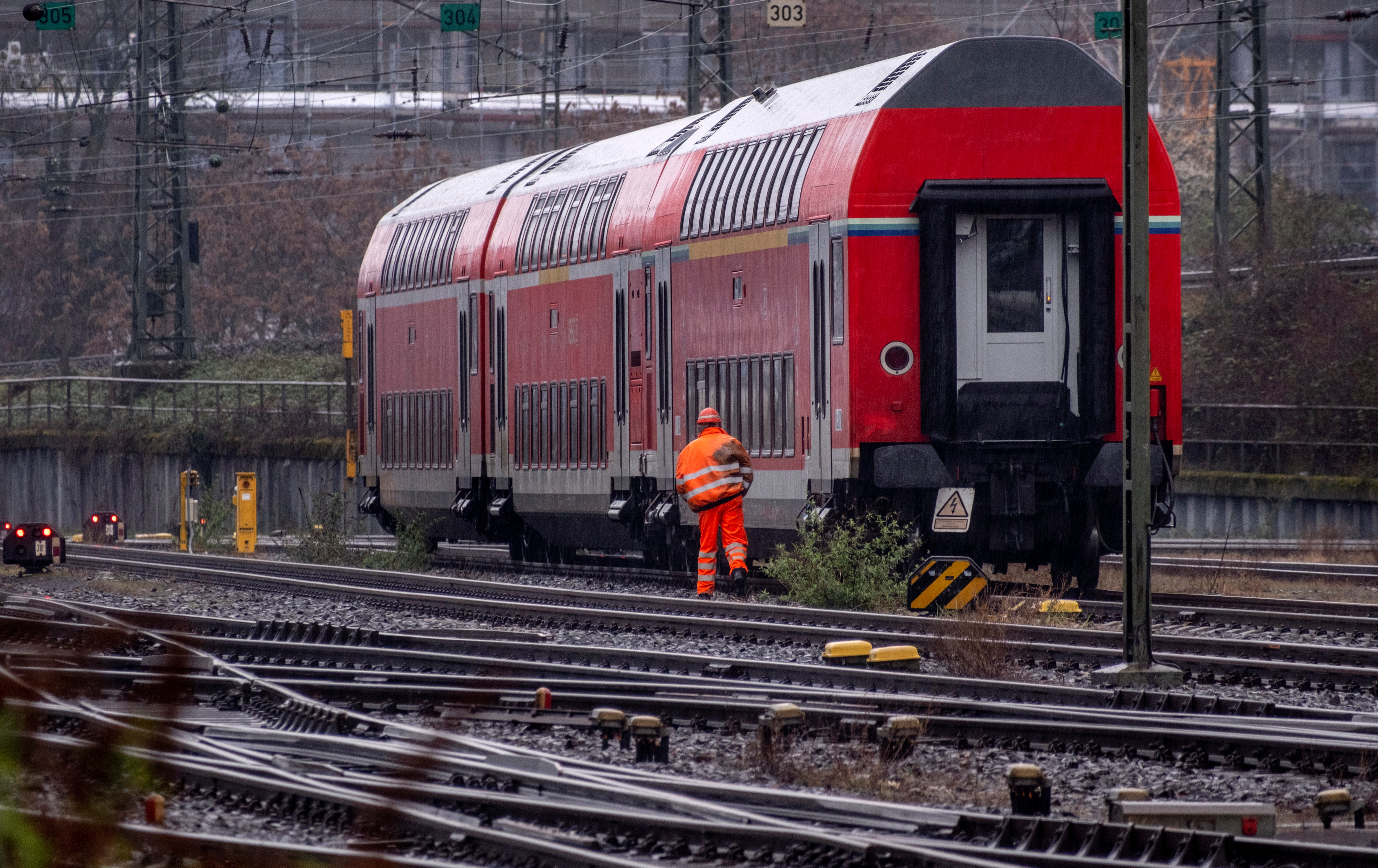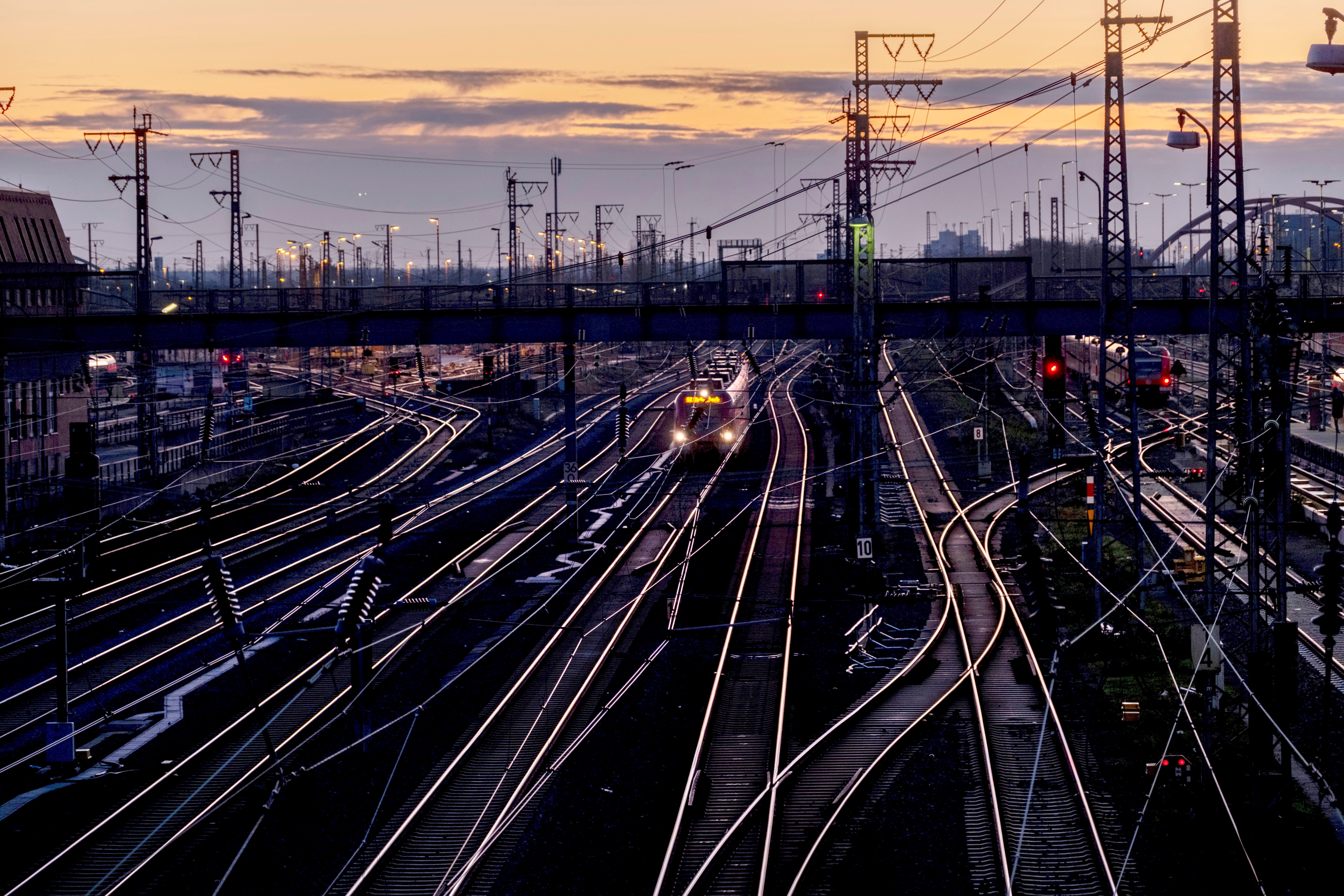Germany announces major works on busiest rail route – day after Euro final
Fans at the competition have complained of issues with the trains across Germany

Support truly
independent journalism
Our mission is to deliver unbiased, fact-based reporting that holds power to account and exposes the truth.
Whether $5 or $50, every contribution counts.
Support us to deliver journalism without an agenda.

Louise Thomas
Editor
One of the busiest railway lines in Germany is closing for five months starting on Monday.
The closure of the 70-kilometer (45-mile) stretch between Frankfurt and Mannheim comes as the country launches an effort to get its notoriously disruption-prone network into shape.
Over the past month, German train lines have frustrated football fans at the German-hosted European Championship, which ended Sunday.
There were several horror stories from fans at the tournament.
England fans, through the Football Supporters Association (FSA), said before the competiton they had warned Uefa of the potential for problems travelling to and from grounds following an away game in Munich two years ago and did not hear back.
“To see fans stranded in Gelsenkirchen Hauptbahnhof three hours after the game has finished due to transport problems at a major tournament is quite simply ridiculous,” an FSA statement said. “Ahead of the tournament we made it clear to UEFA and the authorities that many, many thousands of England fans would be travelling to Gelsenkirchen from the outer towns and cities in North Rhine-Westphalia and that transport back to Gelsenkirchen Hauptbahnhof from Arena AufSchalke had to be the biggest priority.”
On Friday, Deutsche Bahn said its punctuality during the tournament was “mixed,” adding that it got “the maximum out of the railway system, but the possibilities were limited by outdated and overloaded infrastructure.”

State-owned railway operator Deutsche Bahn is closing the route until December 14 and plans a full overhaul of the tracks, stations and other infrastructure. More than 300 trains per day use the stretch, part of a main north-south route that connects Hamburg and Cologne with Stuttgart and Basel, Switzerland, and often pick up delays that have knock-on effects elsewhere on the network.
During the closure, all regional trains on the route will be replaced by buses, while long-distance services will be diverted via slower routes.
The 1.3 billion euro ($1.4 billion) overhaul is supposed to kick off a broader program to modernize 40 stretches of railway by 2030 and improve the reliability of a network that often fails to impress.
Transport Minister Volker Wissing said that starting the overhaul program before the tournament would have meant even more disruption.
“I took over dilapidated railway infrastructure in which not enough was invested by my predecessors for decades,” Wissing, who became transport minister at the end of 2021, told Deutschlandfunk radio Monday. “We are going to invest enormous sums, historic sums in the railway.”
Subscribe to Independent Premium to bookmark this article
Want to bookmark your favourite articles and stories to read or reference later? Start your Independent Premium subscription today.